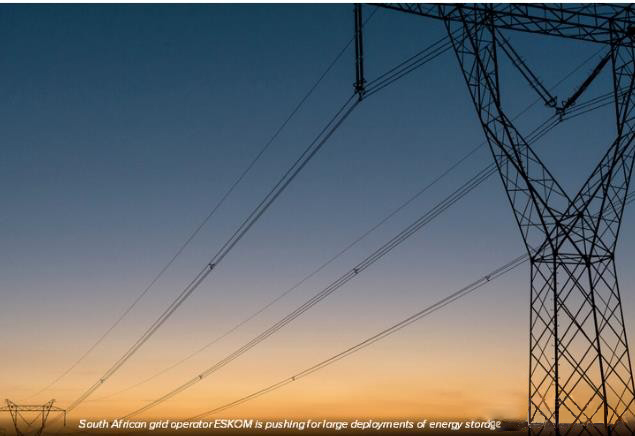US startup Ambri has received an order for a 300MW/1400MWh energy storage system in South Africa based on its liquid metal battery technology.
The company claims its batteries are cost-effective, durable, and safe for large-scale and prolonged-term energy storage applications.
Ambri has signed an agreement with a South African renewable energy generator and power seller, Earth & Wind, to deploy the storage batteries at a scenic co-generation site in the Eastern Cape province of South Africa.
Earth & wind, which has not yet started its power generation and sales business, is currently increasing its large-scale installations of wind, solar, hydro, and biomass, having signed more than 15GW of partnership agreements and land agreements in five South African provinces.
Of these, 2GW of wind and solar projects have passed the environmental approval stage and are poised to open their first 19MW solar farm plant this year.
South Africa's power grid experiences frequent blackouts, so grid operator Eskom periodically pulls the plug to keep the power system stable.
Solutions to these problems include targeted procurement of dispatchable power. Eskom has conducted a significant tender to invest in constructing a gas-fired power plant and a light storage plant.
The demand for dispatchable resources, coupled with South Africa's national climate and renewable energy policy goals, will continue to drive the development of energy storage technology.
Ambri's batteries use liquid calcium alloy as the negative electrode, molten salt as the electrolyte, and solid antimony particles as the positive electrode in a stainless steel container, which is ultimately integrated into a DC-coupled containerized battery energy storage system.
Amber claims that although these batteries operate at temperatures of 500°C, they use safely and do not suffer from some of lithium's safety or technical problems, such as thermal runaway.
On June 21, Donald Sadoway, Ambri's founder, chief scientific advisor, and a professor at MIT received the European Invention Award for his work on batteries.
In accepting the award, Sadoway said, "Liquid metal batteries could address a threat to the atmosphere, which is related to climate change."
Ambri was founded in 2010, and its commercialization activities have accelerated in the past few years. Last year, it secured $144 million in Series A funding and a long-term supply agreement for the antimony metal used in its cathode.
Earlier this month, the company planned to triple the size of its Massachusetts manufacturing facility and add an innovation center. Ambri also said it will begin delivering cells to the Earth & Wire project in 2024, with the project expected to be ready for commissioning in 2026.

